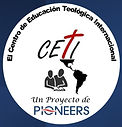Principle 1: Needs Assessment
- Admin - David Hunter

- 9 jun 2024
- 2 Min. de lectura
Learning to Listen Learnig to Teach - Jane Vella (excerpts pages 5-8)
Doing an adequate needs assessment is both standard practice and a basic principle of adult learning, which honors the fact that while people may register for the same program they all come with different experience and expectations. No two people perceive the world in the same way. How can we discover what the group really needs to learn, what they already know, what aspects of the course that we have designed really fit their situations? Listening to learners’ wants and needs helps shape a program that has immediate usefulness to adults. The dialogue begins long before the course starts.
Thomas Hutchinson (1978) of the University of Massachusetts, Amherst, offers a useful question for needs assessment: Who needs what as defined by whom? This WWW question—who as needers, what as needs, whom as definers—reveals the political issues involved in preparing a course for adult learners. Who are, indeed, the decision makers of this course? Is it the teacher? Is it the learners?
Adult learners must take responsibility to explain their context; the teacher must take responsibility to contact learners in every way possible, see them at work if possible, and be clear about what she can offer them. I cannot teach what I do not know. I have the issues and knowledge sets that I want to teach them. Adult learners, however, can name what they see needs to be taught, as well. They will vote with their feet if the course does not meet their needs.
This listening effort is what we call a learning needs and resources assessment. It is both a practice and a principle of adult learning. Paulo Freire (1972) refers to it as thematic analysis, a way of listening to the themes of a group. Themes are issues that are vital to people. When adult learners are bored or indifferent, it means their themes have been neglected in the design of the course. Motivation is magically enhanced, however, when we teach them about their own themes. People are naturally excited to learn anything that helps them understand their own themes, their own lives.
Wheatley speaks of the advantage to dialogue and needs assessment of actually seeing people at work. “However you do it, discovering what is meaningful to a person, group or organization is your first essential task” (1999, p.149). Their themes are then visible and tangible. We can hear such themes by inviting them to describe situations they face, by asking for critical incidents in their work, by having a potluck supper where we can meet students with their spouses and partners in a relaxed atmosphere.
Remember that needs assessment does not form the course; it informs it. It is my duty as professor to determine what can be learned in the given time frame of a course; it is also my duty to begin the learning dialogue before the course begins.


Comentarios